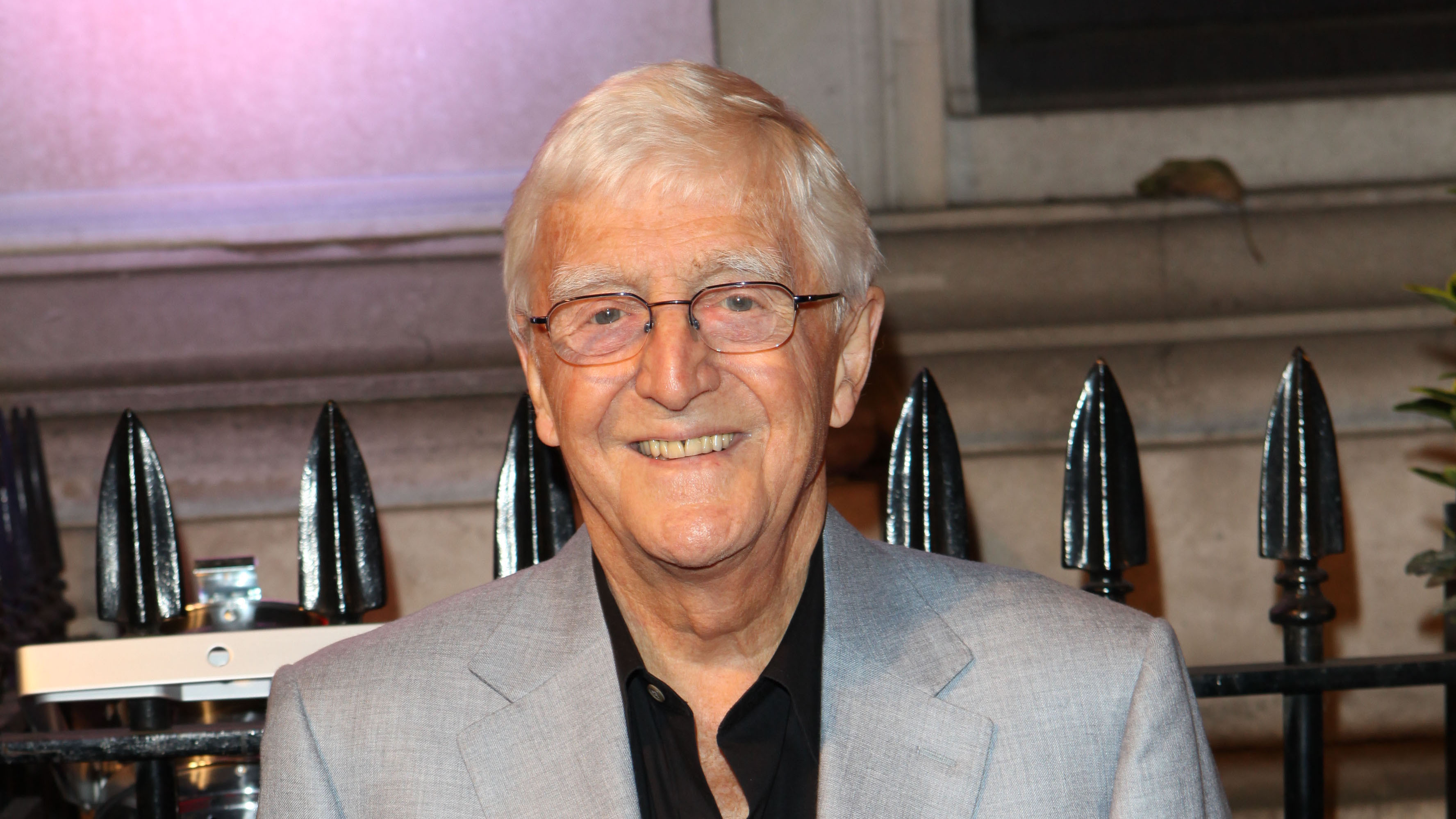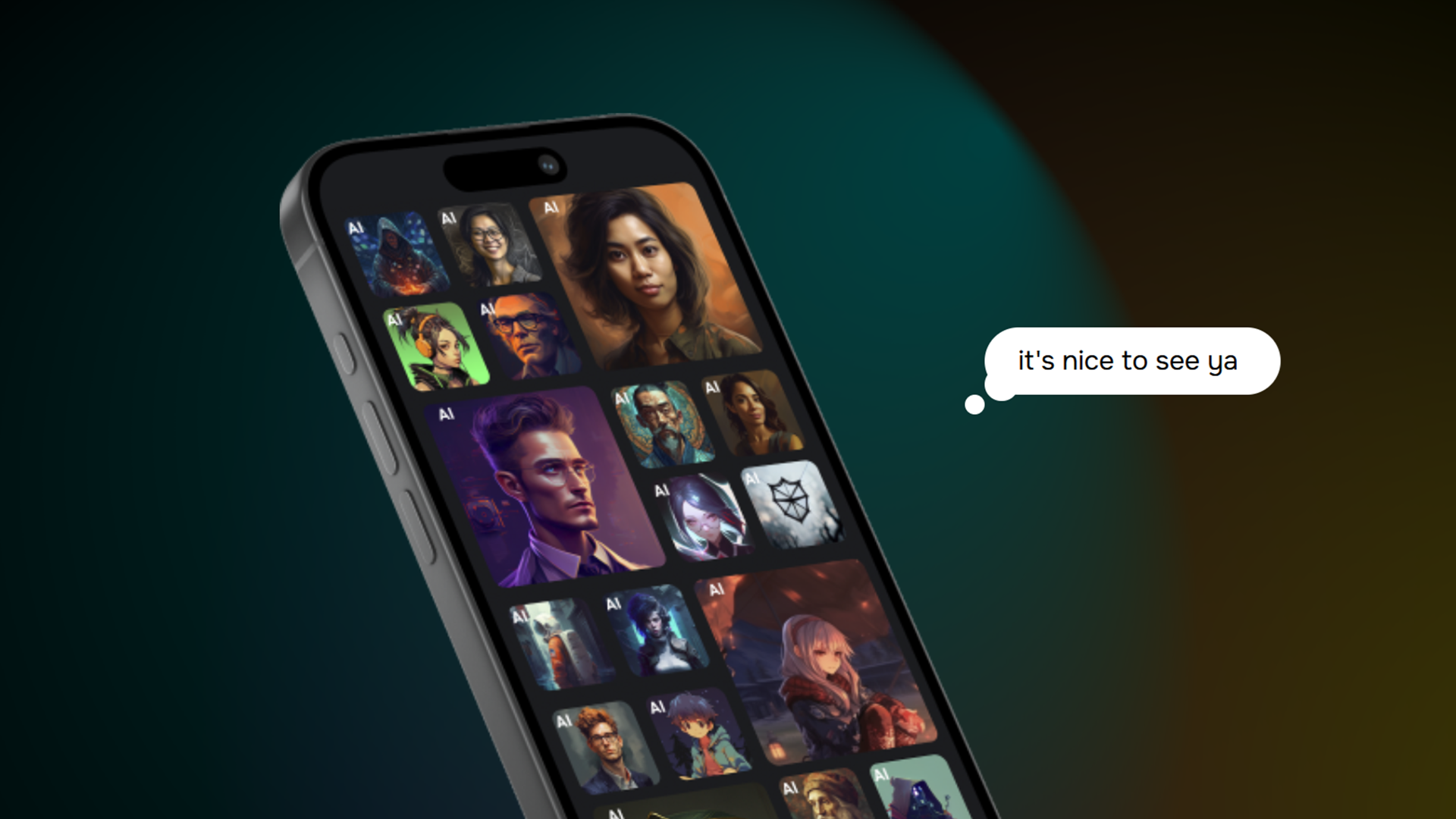AI is bringing back the late Michael Parkinson for a podcast – and that’s left me feeling seriously conflicted
The interviews can now go on forever

- Legendary talk show host Michael Parkinson to return in AI form
- Polish radio station Off Radio Krakow sacks its hosts and uses AI instead
- New Tom Hanks movie Here uses AI to de-age its stars
AI is being used to launch a new podcast from the late, great TV talk show host Michael Parkinson, who died in 2023 aged 88. While that might sound creepy to some, the project called Virtually Parkinson is being fully backed by Mike Parkinson, the son of the legendary talk show host, and his estate.
Virtually Parkinson has been produced by Deep Fusion Films and will be an 8-part series launching later this year. Each episode will be unscripted, with the guests talking to the AI-generated Parkinson on headphones, as if he was a real person.
Michael Parkinson, known as “Parky”, was a legend of the British talk show scene, most notable for his TV show called simply Parkinson, which launched in 1971 and was a mainstay of British television until 1982. The show was brought back in 1998 and ran until 2004.
You can hear the AI-generated Michael Parkinson talk on a recent episode of ‘The rest is entertainment’ podcast. The fact that this isn’t Michael Parkinson talking is particularly creepy because it sounds just like him. His son however appears to be totally on board with the project. Each episode of the show is signposted to indicate that this is an AI-generated Michael Parkinson talking, so there is no attempt to deceive the listener. Talking to Podnews, Mike Parkinson commented “The podcast is really a tribute to my Dad. I want audiences to marvel at the technology, the cleverness and the cheekiness of the concept, but mostly I want them to remember just how good he was at interviewing and enjoy the nostalgia and happy memories. Through this platform, his legacy can continue, entertaining a new generation of fans.”
The future of podcasts
Earlier this year I wrote about NotebookLM, Google’s podcast generator that produces a complete AI-generated podcast in minutes from analyzing an article or YouTube video. What astounded, and unnerved me, most about Notebook LM was not how it managed to talk knowledgeably about any subject, but how difficult it was to tell that the podcast was completely AI-generated. The presenters sounded completely human. I knew at that point that this was only the beginning of AI podcasting.
While each podcast NotebookLM creates currently has the same two presenters, it’s still early days for its development and surely it won’t be long before a variety of presenters will be available. At that point, you have to start wondering if there’s even a future for humans presenting podcasts, talk shows, and radio shows.
Recently in Poland, the entire presenting team of radio station, Off Radio Krakow, was replaced with AI bots, and the resulting furore actually helped revive the station’s flagging fortunes. The three Gen Z presenters, Emilia, 20, Jakub, 22, and Alex 23 who come complete with pictures on the station’s website are completely AI-generated. The station isn’t limiting AI to the hosts either, it even bagged an interview with Wislawa Szymborska, a Polish cultural icon, recently, even though she died in 2012. Despite the revived fortunes of the station, which previously had hardly any listeners, the backlash to the sacking of human presenters for AI hosts caused the station to abandon its AI experiment in the end.
Get daily insight, inspiration and deals in your inbox
Sign up for breaking news, reviews, opinion, top tech deals, and more.

AI killed the video star
AI mimics of human presenters won’t stop with podcasts and talk shows. Chatbot website Character AI has already hit the headlines and drawn some controversy, for its unrestricted ability to let you talk to long-dead historical figures like Socrates and Cleopatra, but also to more modern celebrities, both real and fictional like Steve Jobs and Harry Potter.
As the capabilities of AI video generation continue to improve there has been a lot of speculation about AI replicating actors in movies after their death. One Hollywood star who is not keen to be represented by AI in the afterlife is Robert Downy Jr. The star of the Marvel Avengers and Iron Man franchises recently declared that "I will sue all future executives who make AI replicas of me," during an episode of the On With Kara Swisher podcast.
Currently, it seems that AI is being more commonly used to unsettlingly enhance or manipulate living actors. The $50 million movie Here recently used AI to de-age Tom Hanks and Robin Wright over a 60-year time period, using AI models that require no additional hardware and show the results during filming. It’s a technology that wouldn’t have been possible three years ago, and that is much more efficient than using costly CGI to de-age actors on a frame-by-frame basis.
There’s a lot of concern from the creative industries, particularly among artists and illustrators, that AI is going to steal or devalue their jobs, as AI image creation becomes better and more realistic, but as Virtually Parkinson and the movie Here has shown, AI can actually be used to create experiences that wouldn’t have been possible before. It remains to be seen if, ethically at least, audiences will be comfortable with them.
You might also like...

Graham is the Senior Editor for AI at TechRadar. With over 25 years of experience in both online and print journalism, Graham has worked for various market-leading tech brands including Computeractive, PC Pro, iMore, MacFormat, Mac|Life, Maximum PC, and more. He specializes in reporting on everything to do with AI and has appeared on BBC TV shows like BBC One Breakfast and on Radio 4 commenting on the latest trends in tech. Graham has an honors degree in Computer Science and spends his spare time podcasting and blogging.